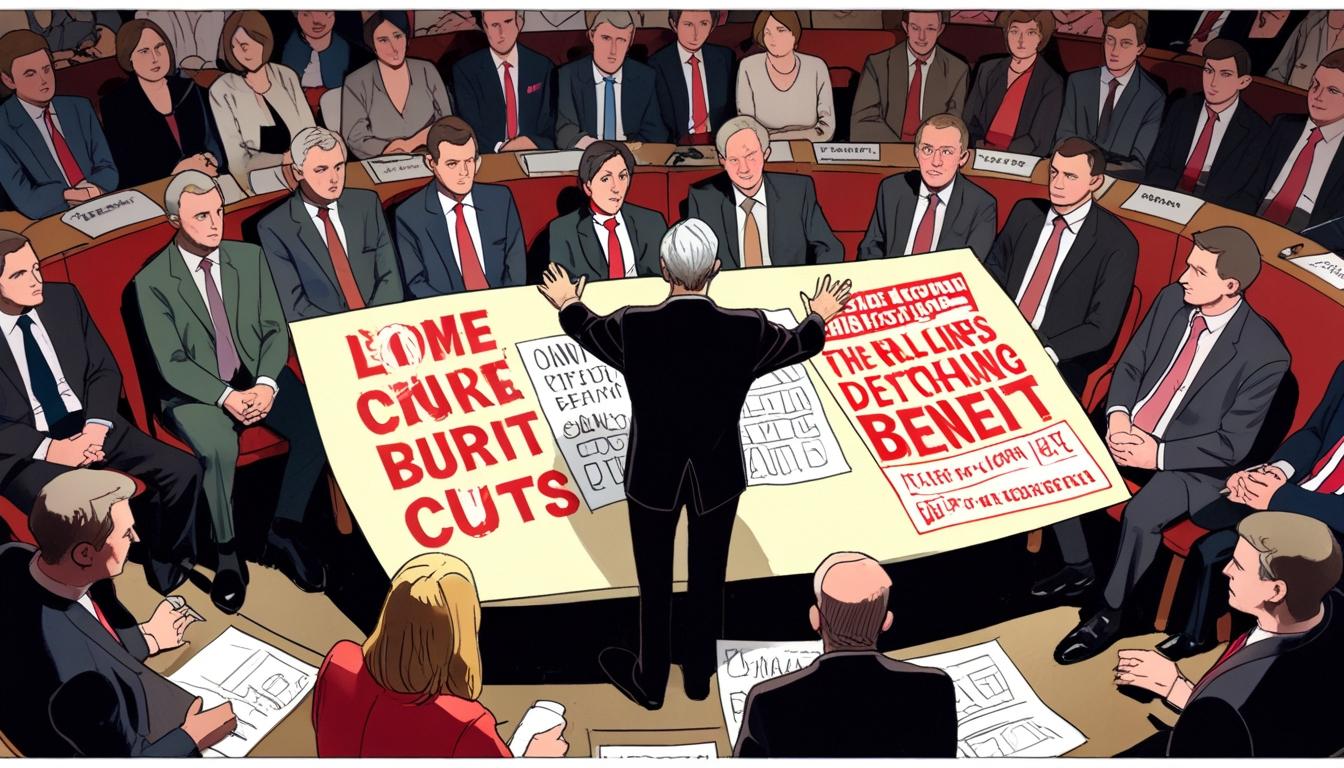Rachel Reeves, the Chancellor of the Exchequer, has asserted the necessity for reform within the UK’s welfare system, but her attempts meet growing dissent among her own party’s members regarding forthcoming cuts to disability benefits. A collective of 42 Labour MPs recently implored Prime Minister Sir Keir Starmer to reconsider these planned reductions, denouncing them as “the biggest attack on the welfare state since George Osborne ushered in the years of austerity.” These cuts to the Personal Independence Payment (PIP), which supports around 800,000 recipients, threaten to exacerbate the socio-economic challenges faced by vulnerable groups, drawing further ire as Labour's commitment to the welfare state seems to falter.
Despite acknowledging her party’s concerns, Reeves insists that the current welfare system, largely a product of past Conservative policies, is inadequate. “I don’t think anybody, including Labour MPs and members, think that the current welfare system created by the Conservative Party is working today,” she stated, but her remarks reveal a troubling narrative. The proposed reforms are framed as essential for stimulating economic growth, yet they risk deepening the existing crisis for those reliant on state support.
Supporters of these cuts claim they are designed to facilitate a return to work, purporting to lessen dependency on state benefits. Reeves declares that focus must remain on those “trapped in benefit dependency” who wish to work. However, critics, including Labour backbenchers, argue that this approach is profoundly misguided. They describe the government's plan as “the wrong medicine,” demanding a comprehensive assessment of its implications on health and social care before any drastic action is taken.
These welfare cuts emerge amid burgeoning critiques of Labour’s broader policies, particularly in light of recent electoral setbacks, including a narrow defeat to an opposition party in the Runcorn and Helsby by-election. Such results underscore mounting dissatisfaction among voters, particularly regarding welfare cuts perceived as threatening crucial support for pensioners and disabled individuals. Labour's failures at the polls have ignited internal disputes about these welfare policies, prompting figures like Diane Abbott and Rachael Maskell to call for urgent reevaluation.
Moreover, Labour's adjustments to the winter fuel allowance—vital aid for nearly 10 million pensioners—further fuel discontent. While Reeves argues these decisions were necessary due to the financial challenges inherited from the previous government, critics contend that these cuts reflect a troubling retreat from Labour’s social safety net commitments. The public outrage suggests a need for the party to reconsider its fiscal strategy; some are even advocating for tax increases to safeguard essential services rather than eroding support.
Research from the Institute for Fiscal Studies (IFS) highlights the critical stakes involved in the welfare reform discourse. Health-related welfare spending has ballooned to £48 billion for 2023-24, with projections indicating an increase to £63 billion by 2028-29—largely driven by demographic shifts, the fallout from COVID-19, and escalating mental health issues among young claimants. These alarming figures raise urgent questions about the viability of current benefit policies and expose the complexities of establishing effective support systems.
As the Labour government struggles to navigate these contentious reforms, the welfare conversation remains fraught with challenges. While the Chancellor champions the notion of systemic change to promote economic stability and growth, an undercurrent of discontent from backbench MPs and the electorate demands a rigorous reconsideration of how these reforms may disproportionately affect the most vulnerable sectors of society.
In the days ahead, the Labour government faces a pivotal moment as it seeks to regain lost momentum in other policy areas, such as immigration and housing; yet, the looming threat of backlash from their agenda on welfare casts a long shadow over their political aspirations.
Source: Noah Wire Services
